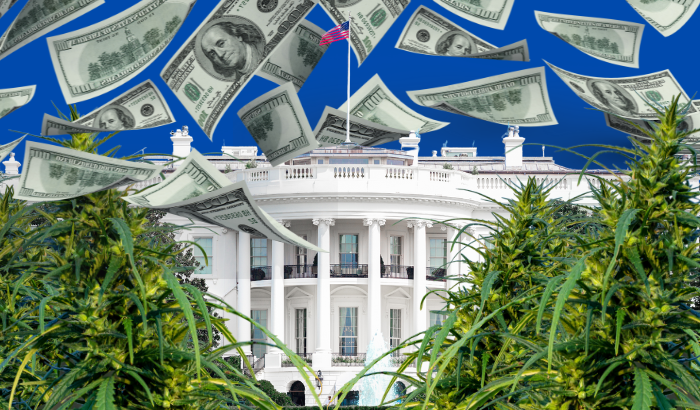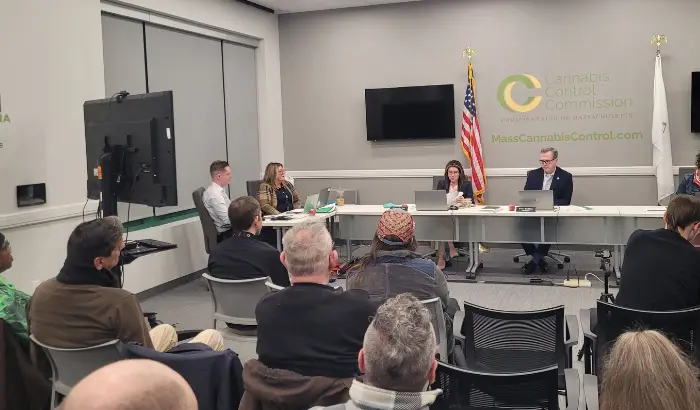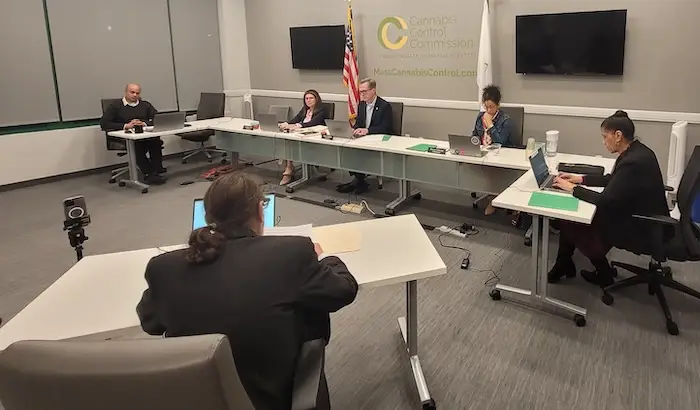
“Trump’s statement on Truth Social signals that there is a political realignment that is well underway on the issue of cannabis reform.”
Republican presidential nominee Donald Trump’s early Monday statement that he would vote to legalize recreational marijuana use in Florida sent a strong signal that both major parties are moving to adopt popular marijuana reform efforts, unexpectedly elevating the issue in the presidential battle.
But the campaign for the Democratic nominee, Vice President Kamala Harris, expressed strong skepticism about Trump’s sudden embrace of reform and criticized Trump’s record in office, accusing him of “blatant pandering” after States Newsroom inquired about Harris’ position on legalization.
The statement from Trump, who has sought to portray himself as a “law and order” candidate throughout his political career, shows the growing support for marijuana legalization among voters of both parties nationwide — and could be a signal that GOP elected officials will align themselves with legalization, Josh Glasstetter, a spokesperson for the advocacy group U.S. Cannabis Council, said in an interview with States Newsroom.
“Trump’s statement on Truth Social signals that there is a political realignment that is well underway on the issue of cannabis reform,” Glasstetter said.
Trump said in a post to his social media platform that he would vote yes on Florida’s Amendment 3, a ballot initiative to legalize recreational cannabis use in the state.
He also said he supported federal legislation to remove federal restrictions on banking services for state-legal marijuana businesses and moving cannabis from Schedule I to Schedule III of the federal Controlled Substances Act.
States with legal recreational marijuana industries, which now number 24, have long sought tweaks to federal law to allow banks to legally provide loans and other services to marijuana businesses that are legal under state law. Bills in Congress, while largely bipartisan, have been introduced for years but not yet won the consensus needed to become law.
Schedule I is the most restrictive category under federal law and indicates a drug has no medicinal value and high risk of abuse. President Joe Biden’s administration has started the move to Schedule III, which includes heavily regulated legal substances including Tylenol with codeine.
Harris camp blasts Trump
The Harris campaign said Trump is trying to gloss over his past.
“Despite his blatant pandering, Donald Trump cannot paper over his extensive record of dragging marijuana reform backward,” campaign spokesman Joseph Costello wrote in an email. “As president, Trump cracked down on nonviolent marijuana offenses – undermining state legalization laws, opposed safe banking legislation, and even tried to remove protections for medical marijuana.
“Donald Trump does not actually believe in marijuana reform, but the American people are smart enough to see through his campaign lies.”
The campaign did not respond to a follow-up message seeking clarity on Harris’ position on the issue.
Trump’s first attorney general, Jeff Sessions, took a hard line against a growing trend of states legalizing marijuana use. He rescinded a 2013 document known as the Cole memo that required federal officials to stay out of state-legal marijuana operations.
But Glasstetter said Trump had “clearly reassessed his position” on the issue, reflecting a consensus among voters that Republican officials have been slower to adopt.
“For many years now, cannabis reform advocates have talked about the growing bipartisan consensus among voters in support of cannabis reform and elected officials have been a lagging indicator, particularly on the conservative side of the spectrum,” he said.
While Harris has not highlighted the issue — besides not answering emailed questions Monday, the campaign’s newly launched issues page on its website does not mention cannabis — she is seen as an ally of reformers based on her record, including as U.S. senator and California attorney general, Glasstetter said.
Harris convened a roundtable of marijuana reform advocates at the White House in March that included rapper Fat Joe and Kentucky Gov. Andy Beshear, a Democrat. At that event, she promoted the administration’s work to relax federal marijuana restrictions and spoke in favor of broad reforms.
“I’ve said many times: I believe –— I think we all at this table believe — no one should have to go to jail for smoking weed,” she said.
Leading Republicans
Trump’s endorsement could be seen as an attempt to close the policy gap between the parties on a popular issue.
Republicans in Congress have lagged behind their Democratic colleagues in seeking marijuana reforms, even as polls and ballot initiatives in states that favor both parties have shown legalizing marijuana use is an increasingly popular position among voters of all political persuasions, Glasstetter said.
A Pew Research Center poll this year showed 88% of respondents thought marijuana should be legal for recreational or medical use. That was up from 68% in the same survey in 2022.
At a May hearing of the U.S. House Appropriations Subcommittee on Commerce, Justice and Science, just days after Attorney General Merrick Garland announced the administration would seek to reschedule cannabis, Republican representatives voiced skepticism over the move to federal Drug Enforcement Administrator Anne Milgram.
Rep. Robert Aderholt, an Alabama Republican, noted studies finding a connection between cannabis use and psychosis. The country is dealing with a mental health crisis, he said.
“My concern is rescheduling marijuana would make the crisis worse,” he said.
But an endorsement from Trump, who holds immense influence among congressional Republicans, could be crucial to getting more Republicans to change their positions, Glasstetter said.
“Former President Trump is a leading indicator,” he said. “We expect that his high-profile embrace of cannabis reform will make it much easier for other Republicans, particularly in Congress, to come out in support of cannabis reform.”
This article was republished from the Iowa Capital Dispatch under Creative Commons license CC BY-NC-ND 4.0. You can read the original version here.

























